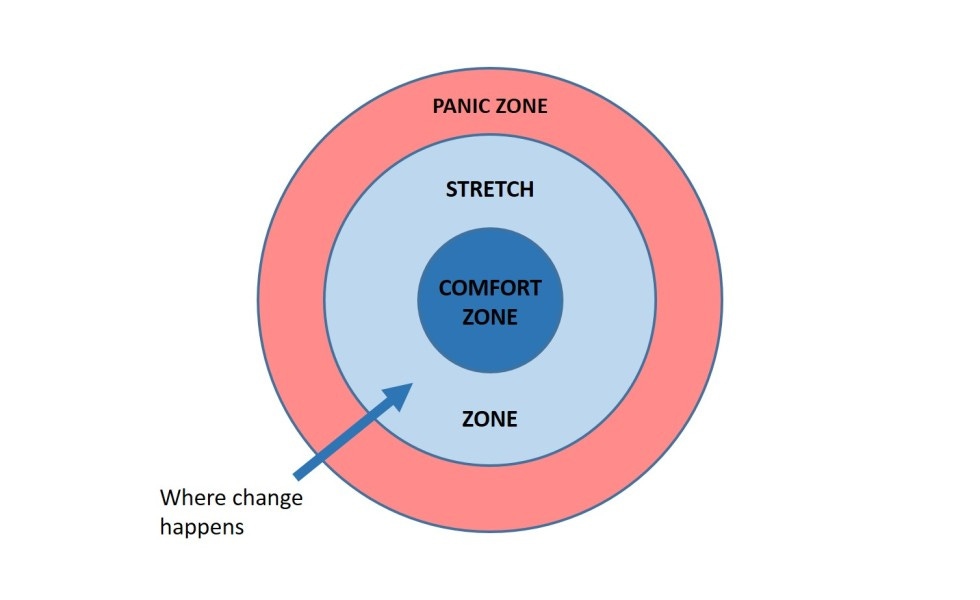Fujitsu
7 lessons from the first 7 months
Employer Insight
There’s so much generic advice out there that’s been repeated a billion times when it comes to settling into your first job out of university. You got your “Be proactive”, “never stop learning” and your “Don't be afraid to ask questions”.

I wish there was more about adapting to a new workplace or practical pieces of advice. Because of that, I’ve been reflecting frequently since the 1st of February, figuring what I wish others knew if I were to repeat the last 7 months. Here are 7 lessons I’ve learnt.
1. Know your ‘Dead’ times ⌚
Understand your body clock - when you feel the most tired, overwhelmed and how to energise yourself.. This requires a lot of trial and error until you discover what works for you. After all, everyone’s different.
For me, I observed that I was generally tired around 11 am and 2 pm (the afternoon slump). A coffee at those times should be the fix to that…right?

Although it was a good short term fix, I eventually realised I had difficulty falling asleep, leading to me mindlessly scrolling through my newsfeeds. On top of that, I experienced withdrawal symptoms like headaches on the weekends. I soon learnt that I should only settle for my caffeine fix in the mornings and a set of 20-30 push-ups in the arvo to fuel me up.
2. Start an ‘Acronyms’ spreadsheet
In every organisation, there’s going to be lingo that you have to get used to. It’s like my mum having to get used to social media language:
lol - Laugh out Loud
ttyl - Talk to you later
wtf - Why the face 😲
My advice: set 3 columns with the headings: Acronym, Name, Meaning in your spreadsheet and add terms whenever you encounter new ones.
3. Actions and Emotions go hand in hand
Do you just have one of those days where you feel like utter crap so you just lay there?
Now think about those days when you wake up and feel absolutely amazing. Suddenly you’re a superman when it comes to productivity. Emotions drive our actions, but vice versa is also true.
One day, I was absolutely overwhelmed by the sheer number of tasks. I procrastinated for the first hour but I eventually realised that I couldn’t simply ignore it or it would morph into a mountain of forever tasks.
As I tackled each task, 1 by 1, that clutter slowly altered into a sense of relief and satisfaction. That was the moment.
Just as a bonus: Make sure to have a Kanban board to help you visualise your steps.
4. What’s your favourite flavour of ice cream?
To get to that answer, you need to try all the flavours. The beauty of just starting your first job is that you’re young in your career. You have the option to try various things out. This is the best way to figure out what you enjoy, what you despise and what you don’t mind.

This article is not sponsored by The Cow
5. Find people that can stretch you
There was one workshop that centred on how we can improve our adaptability and engagement. To summarise, it suggested that all activities can be split into the 3 zones depending on our temperament:

The Stretch zone makes us feel somehow awkward and unfamiliar but this is where the best learning occurs. It is the zone where you can enhance your possibilities, where you can work towards your personal development, where you can explore your boundaries.
Because of uncertainty, we find it hard to distinguish what lies in the panic or stretch zone, making it hard for us to sometimes make that commitment to improving that area. This is where mentors come in handy.
According to Gretchen Rubin’s The Four Tendencies, the biggest percentage of people fit under the Obliger’s personality - those motivated by their peers. If you want to grow and develop, you need to surround yourself with those that want the best for you and are what you aspire to be like.
6. Titles are overrated
Post-Uni life is a bit whack, especially when you’re catching up with friends for the first time. The conversations start to feel like a networking event.
“I’m a __________ at ________. My day to day is like ________.”
It becomes mundane and dreaded. No one likes meaningless small talk. During this time period, you need to be able to separate yourself from others.
Don’t let your role and title define you and do more of what’s expected.
Don't be a regular IT bloke that does regular IT things.
7. Reflect, Reflect, Reflect
I think journaling is one of the more underrated tips out there. It’s something I like to do on a fortnightly basis. Reflecting helps you to develop your skills and review their effectiveness, rather than just carry on doing things as you have always done them. It is about questioning, in a positive way, what you do and why you do it and then deciding whether there is a better, or more efficient, way of doing it in the future.
It helps you to build up your self-awareness and help understand what your strengths and weaknesses are, what motivates you, and how you can use them to your advantage.
Bye for now 👋
Justin Huang